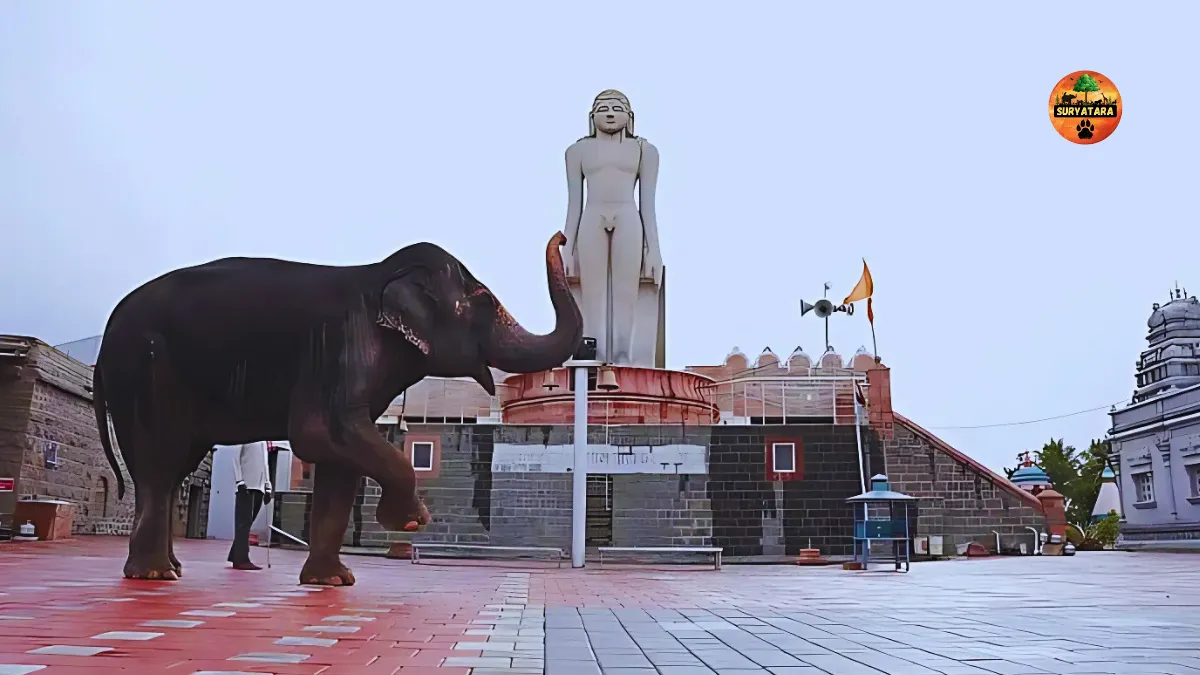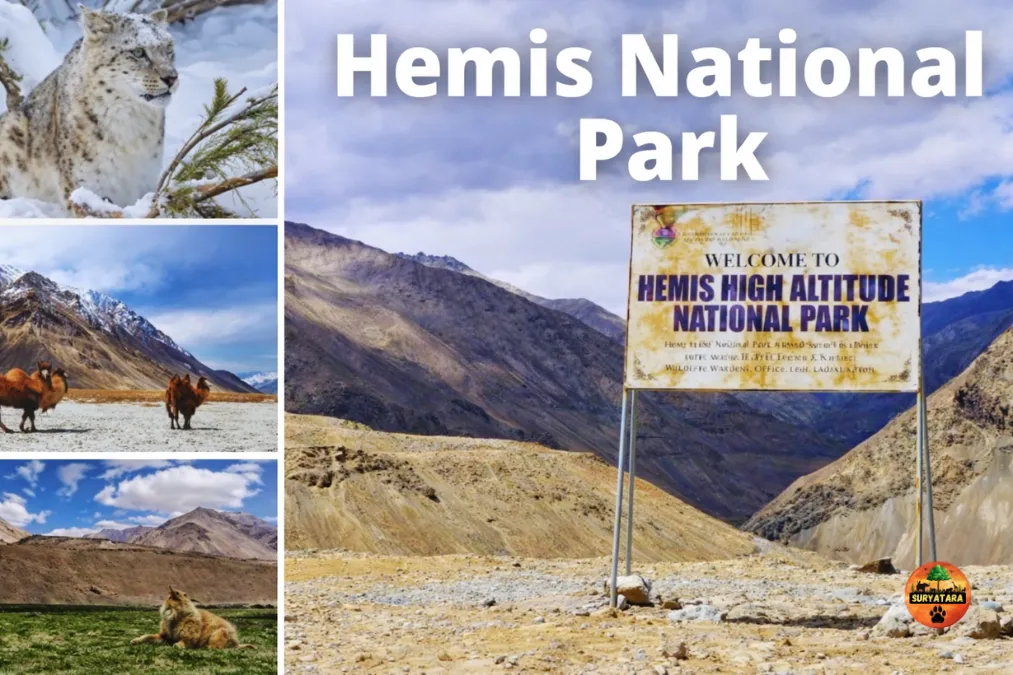The Mahadevi elephant has become the center of a heated discussion between wildlife activists, animal welfare organizations, and the authorities in Maharashtra. PETA India has strongly objected to the idea of sending the Mahadevi elephant back to Kolhapur, arguing that the facilities required for her health and well-being simply do not exist in the state at present.
According to PETA India, Mahadevi urgently needs a peaceful, spacious environment where she can roam freely, a pond to help relieve pain and support exercise for her weakened legs, and advanced veterinary facilities to treat her multiple health problems. These needs, PETA insists, are currently being met only at Vantara, a well-equipped elephant welfare facility. They emphasize that until Maharashtra establishes such specialized centers, returning Mahadevi there would be a step backward in her recovery.
PETA India has clarified that if, in the future, Maharashtra sets up a suitable facility with the required veterinary equipment, expert staff, and open spaces for elephants, they will not oppose Mahadevi receiving treatment within the state. However, for now, they stress that her care must remain at a place like Vantara, where her needs can be met fully.
PETA’s Official Statement
PETA India’s latest statement on the plight, treatment and future of elephant Madhuri (Mahadevi). https://t.co/wMLQ14kFKJ#Madhuri #MadhuriElephant #MahadeviElephant pic.twitter.com/KGScTgMNf4
— PETA India (@PetaIndia) August 8, 2025
In a public statement, PETA India said:
“We are aware of the ongoing discussions about the ultimate fate of the Mahadevi elephant and hope for the best outcome for her. We agree with the Bombay High Court’s order dated 16 July 2025. Considering her poor health, her well-being must be given top priority. Just as humans sometimes need hospitalization, intensive care, and retirement from work, elephants require similar attention when they grow old or fall seriously ill.”
PETA also highlighted the importance of companionship for elephants. Much like humans need social connections, elephants are highly social animals that thrive in the company of other elephants. They live in matriarchal family structures where bonds and relationships hold great emotional value. For this reason, PETA suggested that Mahadevi should be allowed to meet and live among her fellow elephants at the Radhe Krishna Mandir Elephant Welfare Trust located within Vantara.
The Need for Companionship and Specialized Care
Elephants are herd animals that suffer emotionally and physically when kept alone. Mahadevi’s long-standing isolation, combined with her deteriorating health, has made companionship with other elephants essential for her mental stability. PETA believes that living with others of her kind could help reduce her stress levels and improve her recovery prospects.
The organization has repeatedly underlined that Mahadevi requires specialized veterinary care, which includes treatments that address both her physical ailments and her emotional distress. This is especially critical as she has been diagnosed with grade-4 arthritis, a severe and advanced stage of the condition that causes intense joint pain. The problem is made worse by painful foot rot, a common but dangerous condition in captive elephants.
According to PETA India, these health problems are signs not only of physical suffering but also of severe psychological stress. The organization points out that in many cases, elephants under extreme distress have been known to act aggressively—sometimes with fatal consequences.
History of Confinement and the Court’s Intervention
Mahadevi has spent over 33 years in solitary confinement, living on hard concrete surfaces that have severely damaged her feet and joints. This unnatural environment has left her physically weakened and emotionally scarred.
The turning point came when the Bombay High Court, supported later by the Supreme Court of India, ruled in favor of moving Mahadevi to a better facility that could meet her unique medical and emotional needs. These legal interventions have given her the opportunity for a peaceful retirement, freedom from chains, and a chance to heal from decades of suffering.
PETA India has also drawn attention to a troubling incident in her past—Mahadevi allegedly killed the chief Swamiji during a period of heightened distress. The organization uses this as further evidence of the dangers of keeping elephants in environments that do not meet their needs. Stress, pain, and isolation can push even the gentlest animals into unpredictable behavior.
Why Vantara is the Preferred Option
Vantara is a specialized elephant care facility that offers everything Mahadevi currently needs—vast open areas for walking, ponds for bathing and hydrotherapy, expert veterinarians, and the presence of other elephants. Such facilities are rare in India, and according to PETA, there is nothing comparable in Maharashtra at the moment.
At Vantara, Mahadevi can enjoy:
- Freedom from chains and harsh confinement
- Access to water bodies for relief from arthritis pain
- Social interaction with other elephants
- Advanced medical treatment from trained wildlife veterinarians
- A natural environment that allows physical movement and mental stimulation
Until a facility of similar standards is created in Maharashtra, PETA maintains that Mahadevi’s best chance at recovery and a dignified life is to remain at Vantara.
Elephants Deserve Retirement Too
PETA India’s stand on the Mahadevi elephant case is rooted in a simple belief—just as humans deserve to rest after years of labor, so do animals. Elephants that have spent decades working in temples, circuses, or tourism often suffer from chronic health problems, both physical and mental. Retirement, for them, is not a luxury but a necessity.
Mahadevi’s life story is a reminder of how long-term captivity can lead to deep suffering. By prioritizing her well-being now, there is hope that she can spend her remaining years in comfort, surrounded by the companionship and care she was denied for so long.
Also read: Gaj Mitra Yojna: असम सरकार की अनोखी योजना, मानव और हाथी संघर्ष को कम करने की दिशा में बड़ा कदम
A Larger Conversation on Elephant Welfare
The debate over Mahadevi’s future also opens a broader discussion on the welfare of captive elephants in India. Many elephants in temples, zoos, or private ownership live in conditions far from ideal—chained for long hours, deprived of social contact, and denied access to proper veterinary care.
Animal welfare advocates believe that cases like Mahadevi’s should serve as a turning point, pushing authorities to create state-of-the-art elephant care centers across India. These should include natural habitats, medical facilities, and trained staff dedicated to the rehabilitation and dignified retirement of elephants.
Also read: Bannerghatta Biological Park Sends Four Elephants on Historic Journey to Japan
Conclusion: Compassion Over Convenience
The Mahadevi elephant deserves a future where her health and happiness take precedence over convenience or tradition. PETA India’s opposition to her return to Kolhapur is not an act of defiance but a plea for compassion—urging all stakeholders to recognize that animals, like humans, have the right to live free from unnecessary pain and suffering.
Until Maharashtra can provide the same level of care as Vantara, sending Mahadevi back would mean undoing the progress made in her recovery. For now, the best gift society can give her is a peaceful, chain-free life with proper medical care and the company of her own kind.













